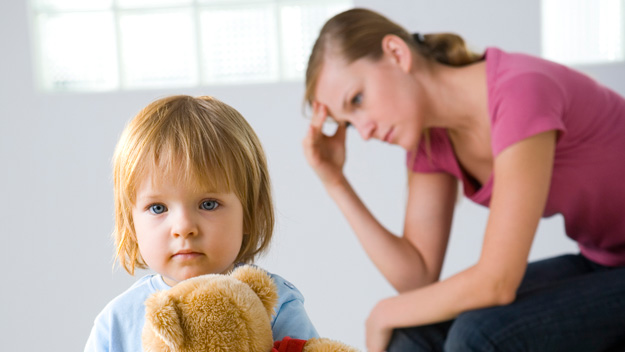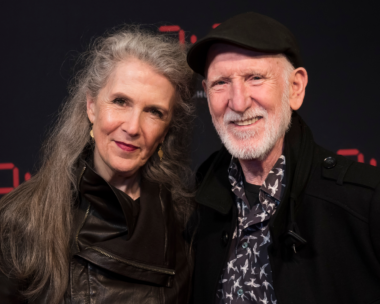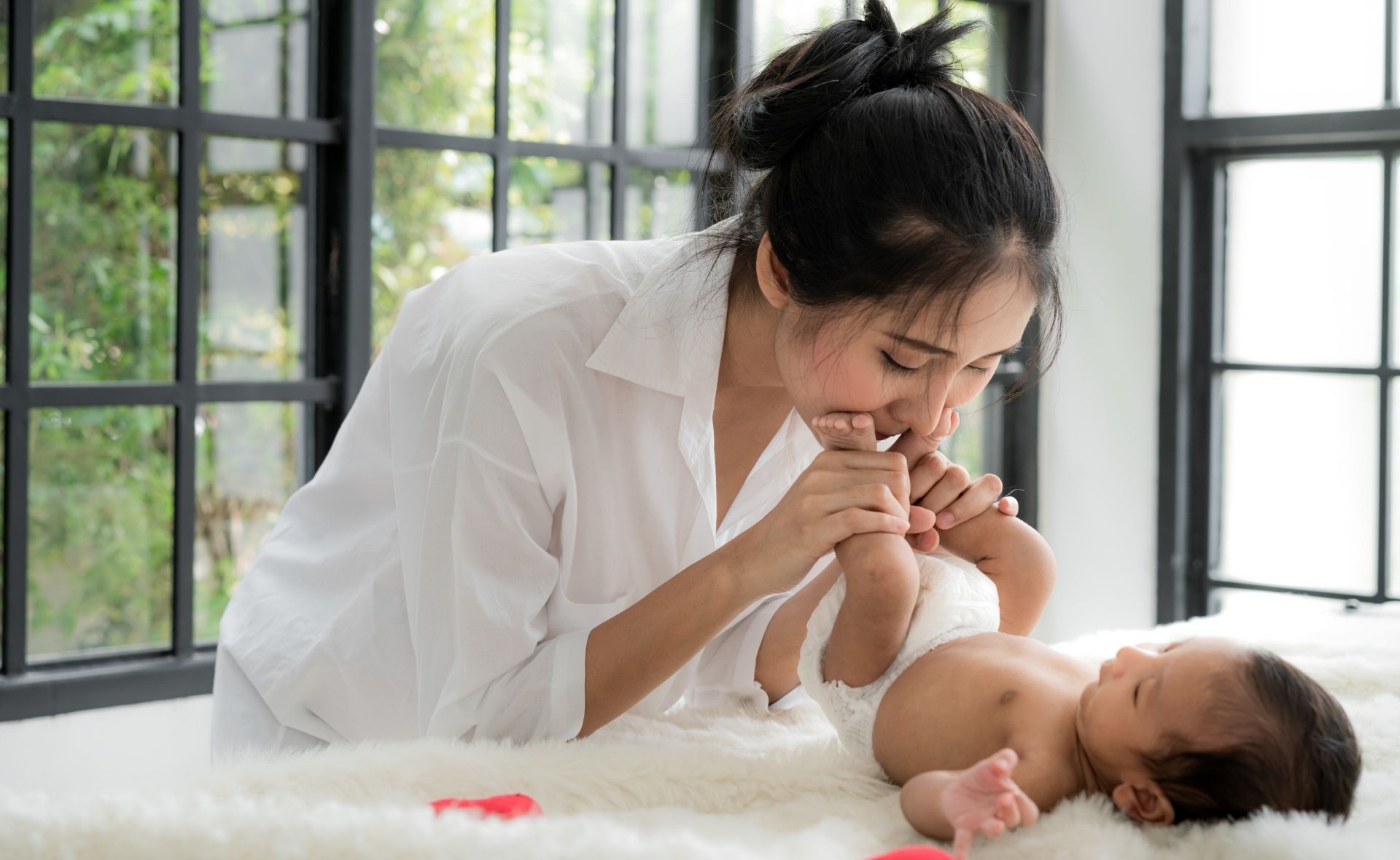One in seven Australian mothers experience postnatal depression, and thousands more suffer in silence.
For Jackie Hall, that suffering culminated in a terrifying incident which saw a kitchen knife narrowly miss her two-year-old son’s head.
Jackie started feeling depressed after the birth of her first son, and the feelings only intensified when her second was born just 16 months later. When her boys were two years old and six months old, she had a breakdown.
In pictures: Our favourite celebrity mums
“I was really angry, self-critical, feeling guilty for being angry, in a vicious cycle that I couldn’t get out of,” Jackie says.
“There was one specific incident where I just got so angry I slammed a knife onto the kitchen bench and it bounced off and narrowly missed my two-year-old’s head.
“It was a massive wake-up call for me. I remember running to my room and screaming that I hated my life. I just fell apart.”
But as her world was crumbling, Jackie had an epiphany. She realised that if she wanted to be happy again, she was the one who needed to do something about it.
“In the middle of that breakdown I specifically remember the words in my head: ‘No one else can change this for you,'” she says.
“That made me jolt into reality and realise I had to do something about this.”
A long-time devotee of self-help books, Jackie did some research and decided to write her own. After years of work, she created The Happy Mum Handbook, which she describes as a mixture of personal experience and tried and tested methods that have helped thousands of people suffering from depression.
“One of the reasons I wrote this book is while statistics are saying one in ten are suffering from post-natal depression, that’s just statistically,” Jackie says.
“What about all the others who aren’t saying anything and who are suffering in silence. I haven’t spoken to a mother yet who hasn’t felt down or depressed. There are lots of mums out there who are struggling.”
Signs you might be suffering from postnatal depression
Thinking thoughts like “I can’t be bothered,” “Why bother?” and “I’m a failure”.
Being unable to see the funny side of things
Not looking forward to things that used to make you excited
Blaming yourself when things go wrong, even if it’s not your fault
Feeling anxious, worried, scared or panicky for no good reason
Feeling like the world is getting on top of you
Having difficulty sleeping
Feeling sad or miserable
Crying for no reason
Thinking about harming yourself
If you think you or someone you know if suffering from postnatal depression, Jackie advises seeking professional help immediately.
For all those who do, there are hundreds more who would never admit they were struggling because of the stigma still attached to postnatal depression. To those women, Jackie has a message: it will get better.
Related: Tackling postnatal depression together
“There is light at the end of the tunnel,” Jackie says. “There is nothing wrong with you, you just need to retrain your brain. It’s never the events themselves that cause us to feel stress, anxiety and depression it is the way we are perceiving the events.
“Someone suffering postnatal depression thinks, ‘The baby is crying, I’m a bad mother because I can’t stop it’.”
“You just need to change the lens you’re looking at life through and the only person who can change it is you.”
For more information about Jackie Hall, or The Happy Mum Handbook visit Jackie’s website Self Help for Mums
The 2011 National Postnatal Depression Awareness week runs from November 18 to 24. For more information, visit Beyondblue.
Your say: Have you suffered from postnatal depression?
Video: Australia’s super-mums




